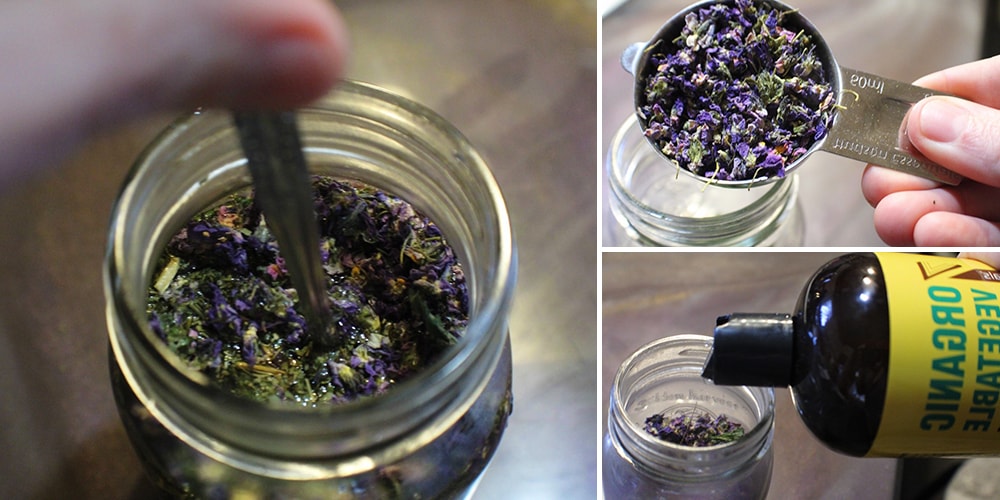
How to Make an Herbal Tylenol Alternative
Editor’s Note: If you’ve been following the news, you already know why this article matters more than ever.
A few days ago, a bombshell dropped: The White House claimed “mounting evidence” links prenatal acetaminophen to autism.
Major health organizations like WHO and ACOG pushed back hard, but here’s what nobody’s arguing about: acetaminophen has risks that you’ve probably never been told about.
You deserve to know the full truth. You deserve alternatives that actually work without the downsides.
While the debate rages on about whether you can take Tylenol while pregnant, what’s getting buried is everything else we already know about this drug: the liver damage, the emotional blunting, the gut problems, the hormone disruption.
Whether it’s children’s Tylenol, infant Tylenol dosage charts, or regular Tylenol for pregnant women, you’ve been told it’s “safe” and trusted it for years. But 52 million Americans are reaching for acetaminophen every single week, and most don’t realize they’re playing Russian roulette with their health.
Here’s the thing: You don’t have to wait for the FDA to update labels or figure out the “right” Tylenol dosage that won’t harm you. You don’t have to sit on the sidelines while experts battle it out. You can protect yourself and your family right now with a natural alternative to Tylenol.
This is where herbal medicine steps in. The ancient wisdom that Big Pharma doesn’t want you remembering. Our ancestors didn’t have Tylenol, yet they managed pain, reduced fevers, and fought inflammation effectively for thousands of years. They used plants. Real medicine that grows from the earth, not synthesized in labs and pushed by pharmaceutical companies more interested in profits than your wellbeing.
What if you could make your own natural Tylenol substitute that works just as well, or better, without the scary side effects?
You can. And we’re going to show you exactly how.
In this post, we will cover why you may want to consider making an herbal alternative to Tylenol. I’ll share my tried-and-true herbal painkiller recipe.
Why Use a Natural Alternative
Liver Toxicity
Tylenol overdose is the second leading cause of liver transplants worldwide, and nearly half of those were unaware they were taking too much. As a society, we’ve become so used to taking over-the-counter (OTC) medications that often, we don’t realize they already have acetaminophen in them, which can lead to an overdose. However, even when taken as prescribed, Tylenol can cause other issues in the body. Tylenol is known to deplete glutathione levels, which is largely housed in the liver.
Emotional Problems
Many are unaware that taking this medication can dull the senses and cause you to lack empathy. Tylenol dulls regions of the brain that signal pain – emotional and physical. One study specifically points to social pain, meaning Tylenol affects the ability to care about social situations and the world around. Researchers also found that acetaminophen reduced participants’ guilt about making mistakes, according to a study published in the Journal Social Cognitive and Affective Neuroscience.
Gut Problems
Tylenol also affects the gut in multiple ways. Firstly, it affects the gut lining, making it easier for bacteria and other debris to penetrate and get into the bloodstream. It can also cause ulcers and bleeding in the intestinal tract.
Dangerous in Pregnancy
Tylenol is one of the only medications that is generally considered safe to take during pregnancy. But is it? New research shows that isn’t actually the case. Mounting proof now says that acetaminophen may disrupt development in the fetus, with possible long-term repercussions on the nervous system, reproductive organs, and genitourinary system, as well as causing lasting alterations in the microbiome.
Reproductive Issues
Tylenol is a known endocrine disruptor, which means it affects hormone production. For example, it’s been found to reduce testosterone production in males as well as the production of estrogen in females.
As an added downside, acetaminophen has been linked to allergic responses and other neurological impairments. Many “generally considered safe” adverse reactions have been reported with this OTC medication. Many more, probably, than average people like you and I would feel safe around.
Look, Tylenol isn’t the villain here. It’s just the tip of the iceberg.
Every time you pop an antibiotic, you’re carpet-bombing your gut microbiome. Every time you reach for that OTC pain reliever or allergy pill, you’re feeding your body lab-made chemicals that your system was never designed to process. And Big Pharma? They’re counting on you never making the connection.
Here’s what they don’t want you to know: Most of these drugs are just cheap imitations of what nature already does perfectly. They isolate one compound, synthesize it in a lab, slap a patent on it, and sell it back to you at a 10,000% markup, with a laundry list of side effects as a “bonus.”
Your ancestors didn’t deal with side effects. You know why? Because they used what the earth provided. Plants that work with your body, not against it. No liver damage. No gut disruption. No hormonal chaos. Just healing, the way it was meant to be.
You’re probably thinking: “Sure, but I can’t find natural alternatives to everything I need.”
Wrong. You absolutely can.
We’ve compiled 250 proven herbal recipes that cover everything from infections to inflammation, from sleep problems to digestive issues (including parasites), from pain relief to immune support. Every single recipe can be an alternative for the pills Big Pharma has convinced you that you “need.”
This is how you finally cut the cord. How you stop handing over your hard-earned money, and your health, to pharmaceutical companies that profit from keeping you dependent.
Click here to get the complete collection of 250 natural remedies →
Your body deserves better than chemicals. And your wallet deserves a break from Big Pharma’s greed.
Natural Tylenol
Tylenol’s ability to quell inflammation and reduce pain comes from both its anti-inflammatory properties, and its ability to alter pain receptors in the brain. It’s also a fever reducer, which has contributed to its ability to address the part of the brain that regulates temperature.
But we have a plethora of both natural anti-inflammatory herbs and natural herbal pain relievers that can be used safely as an alternative. I’ve found that I only need three herbs to achieve the anti-inflammatory, fever-reducing, and pain-relieving effects of Tylenol: Feverfew, Viola, and Catnip.
Here’s a brief overview of what the herbs do:
Feverfew (Tanacetum parthenium L) – is a powerful analgesic and anti-inflammatory agent. Not only can it help relieve headaches and migraines, but it can help keep you from getting them as often. It also helps other pains, nausea, allergies and fever and is also antimicrobial.
Here’s the truth about sourcing feverfew: You could forage it wild, but good luck finding any that hasn’t been doused in pesticides or contaminated by runoff. You could buy it as a supplement, but then you’re getting preservatives, fillers, and who knows what else. Plus you have zero control over potency or freshness.
The only way to guarantee you’re getting pure, chemical-free, maximum-strength feverfew is to do what I do: grow it yourself. I started mine on my kitchen windowsill with seeds that cost literally pennies, and now I have an unlimited supply whenever I need it.
No middleman. No mystery ingredients. Just pure medicine, ready when you are. If you’re serious about taking control of your health, start with these feverfew seeds, it’s the easiest herb you’ll ever grow, and it’ll pay for itself after the first headache you don’t have to suffer through.
→ Get organic feverfew seeds here and start growing your own medicinal garden today
Sweet Violet (genus Viola) – Many have no clue these little beauties are punchy in histamine reducing, anti-inflammatory, and pain-relieving properties. They work especially well and fast for pounding migraines.
Catnip (Nepeta cataria) – It’s not just for playing with cats—it’s an anti-fever, pain reliever, cough remedy, body relaxant, sleep aid, digestive aid, and virus and germ killer. Besides treating cold and flu symptoms, it is a digestive and nerve aid, too. And as a diuretic, it produces perspiration, which helps eliminate toxins.
Herbal Tylenol Recipe
The following herbal tincture is a fantastic alternative to Tylenol and it’s even safe for children after the age of 2. To make it child friendly, I tinctured the herbs in glycerin; however, you can also use alcohol or apple cider vinegar.
Wait! Before you make this remedy, watch this first.
If you’ve ever worried your homemade tinctures are just flavored water, or you’re afraid of accidentally combining herbs that could do more harm than good, you need to see this.
97% of people making herbal remedies at home are making critical mistakes that either destroy the potency completely or create dangerous combinations. Wrong extraction methods. Incorrect ratios. Herb interactions nobody warns you about.
A master herbalist breaks down every single mistake in this free video—the ones that sabotage your remedies before you even bottle them. Five minutes now could save you from months of wasted effort or worse.
▶️ Watch: The Mistakes Killing Your Herbal Remedies
Now that you know what to do and what not to… back to the remedy:
You will need equal parts (approx. 1/3 cup of each dried herb):
- Dried catnip
- Dried violet flowers
- Dried feverfew
- Scalding hot water
- Organic glycerin
Materials:
- A piece of cheesecloth
- A ring or rubber band
- Pint size jar
Making a glycerin tincture can be done in a couple of different ways. For this recipe, we are using a ratio method.
Step 1. Fill the jar about a third to half full of our dried herbs (1:1:1 ratio), then add just enough scalding water to make them float. 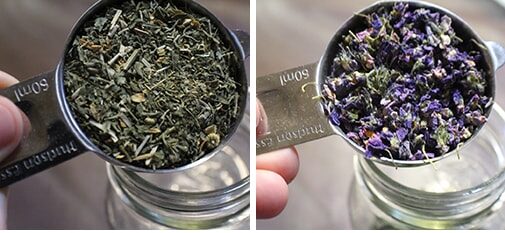
Step 2. Fill the jar the rest of the way with organic vegetable glycerin.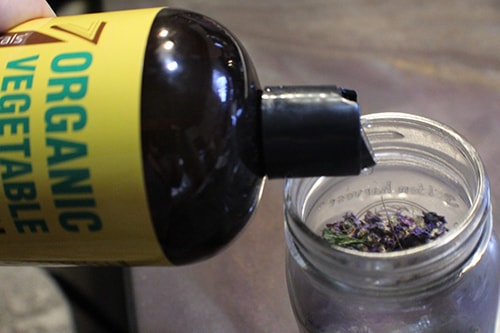
Step 3. Stir well.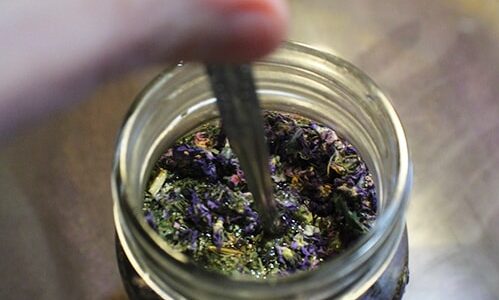
Step 4. Place the cheesecloth on top and secure with a rubber band or jar ring and place in a cool dark place for six weeks, shaking the jar regularly.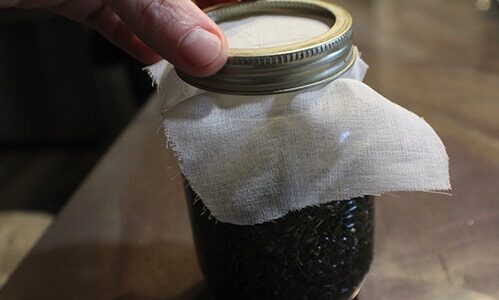
Step 5. Once your natural pain reliever is done, strain it and pour it in a dark dropper bottle.
How to Use
Adults can take up to 60-90 drops of this tincture with a bit of water to relieve headaches, pain, inflammation, and fever. For children two years old and up, start out with 10-15 drops and work your way up to find the correct dosage for their size. Allow at least 20 minutes between doses for it to work though it should work almost immediately to relieve pain.
Look, You’re Probably Thinking: “I’ll Just Make Everything Myself.”
And I love that energy… I really do. But let’s get real for a second.
You’re busy. You don’t have six weeks to wait every time you need a remedy. You might not have access to high-quality organic herbs. You’re worried about making mistakes that waste your time and money (or worse, hurt someone you love). And honestly? Some formulas require herbs that are nearly impossible to source or dangerously easy to misidentify in the wild.
Here’s what I’ve learned after years of making my own remedies: Sometimes the smartest move is having professionally-made, potent, ready-to-use herbal medicine on hand for when life doesn’t wait.
That’s why I’m sharing with you the most comprehensive collection of ready-made herbal remedies you’ll find anywhere online. Each one is crafted with organic ingredients, proper extraction methods, and the exact ratios that actually work, so you get real results, not flavored water.
The 3 You Need Right Now:
→ Joint & Movement Salve – Your direct replacement for Tylenol. Tackles pain, inflammation, and stiffness without destroying your liver or hormones. This is what you reach for instead of acetaminophen. Get it here
→ All-Purpose First Aid Salve – One remedy for cuts, burns, bruises, muscle strains, and skin irritations. Stop buying a dozen products when one does it all better. Get it here
→ Liver Blend Tincture – If you’ve been taking Tylenol (or any OTC meds) regularly, your liver needs help recovering. This restores glutathione levels and repairs the damage. Get it here
Or Choose The One That Fits You Best:
Every remedy below is ready to ship, made with organic herbs, and comes with full ingredient lists so you can even replicate them at home if you want. Click any that match what you need, or explore them all:
- Sleep Blend Tincture
- Anxiety & Stress Tincture
- Balanced Gut Tincture
- Healthy Brain Bundle
- Bronchial Blend Tincture
- Cordyceps Mushroom Tincture
- Eastern Blend Defense Tincture
- Elderberry Tincture
- Heart, Blood Pressure & Blood Sugar Bundle
- Heart Health Blend
- Lemon Balm Tincture
- Lion’s Mane Mushroom Tincture
- Mushroom Fortress Bundle
- Mushroom Trio Bundle
- Reishi Mushroom Tincture
- Stinging Nettle Tincture
- Travel Pack Remedy
- Turkey Tail Mushroom Tincture
- Usnea Tincture Spray
- Warrior Bundle (Autoimmune & MS)
- Winter Defense Bundle
- Yarrow Tincture
- Yerba Santa Tincture
- Lung Support Bundle
- Menopause Blend Tincture
→ Click any to see the full collection and ingredient lists
You can choose what you need now, study the formulas to make your own later, or stock up on everything and finally break free from Big Pharma’s grip for good.
Your health. Your choice. Your terms.


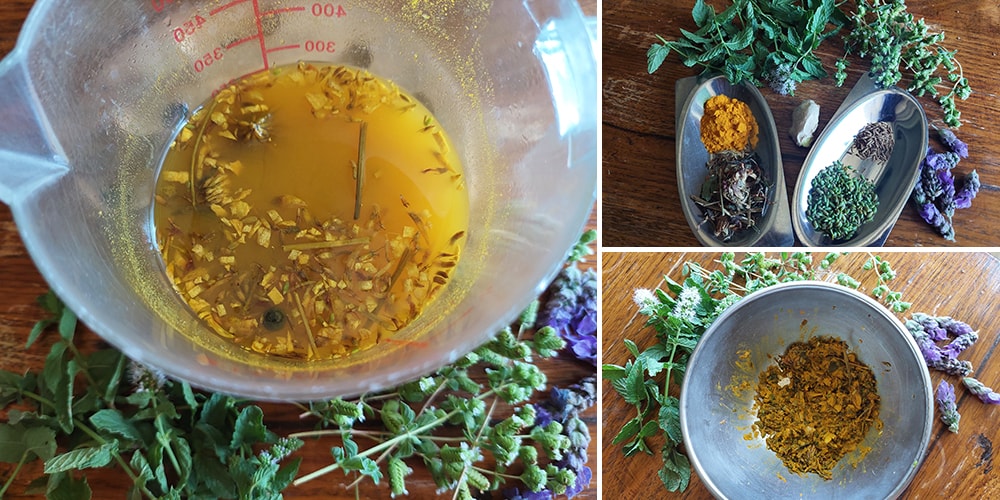
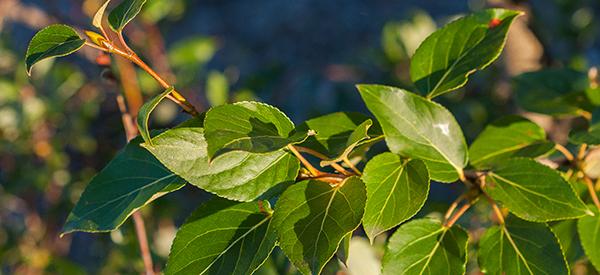
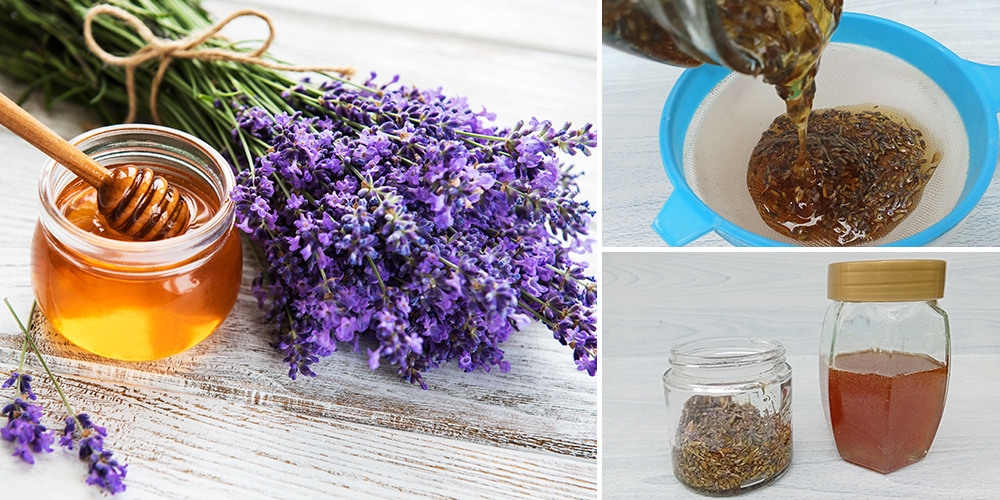
I might be mixed up, but aren’t you referring to ibuprofen? I’ve always been told to take Panadol (acetaminophen) because it is easy on the liver and gut, whereas I am not supposed to take Burana (ibuprofen) because it can damage liver and aggravate the gut .
I am a retired Nurse. The author is correct, Tylenol can be hard on the liver. Because it is easy on the stomach compared with ASA or Ibuprofen, folks have a tendency to take more than is recommended. This is very bad for the liver. Any of the Pharmaceuticals should be taken only as directed by bottle or medical folks, because any of them can be dangerous if otherwise taken, which includes the way they are discontinued.
Herbals are much safer with very few side effects. It is however important to learn all you can about the herbals you intend to use, because each one can frequently have multiple uses in your health care.
Based on what I have learned over the years, I believe ibuprofen is equally tough on our system. Ibuprofen, like Aspirin, is hard on our stomachs, while acetaminophen is much easier on our stomachs. However, the tradeoff with acetaminophen is that it can be harder on our livers. I have always read that the maximum dosage for acetaminophen is 3000 mg per day, but I also suspect that this is far more than most people take. If 3000 mg is the maximum per day then as long as anyone doesn’t exceed that one should be fine; however, I wouldn’t do that for more than a day either (i.e. if one’s headache continues after taking 3000 mg of acetaminophen, then I would suggest a doctor’s visit would be required.
The Herbal Tylenol Recipe sounds like an awesome idea too though…I’m going to give this a try.
We had a dear friend die from taking 1 single Tylenol for a headache. Her liver was so badly injured that they put her in the hospital for months, just to keep her alive. Eventually, though, she still died, even with expert treatments.
I NEVER take Tylenol for ANYTHING!! I do take Ibuprofen, but very occasionally and in small doses, only after all my alternatives have been exhausted without relief!
Does the introduction of water increase the risk of mold and bacteria? Or does the glycerin counteract that? Can it just be pure glycerin?
Emmi, ibuprofen damages the kidneys and acetaminophen damages the liver.
Ibuprofen is extremely hard on the kidneys and tylenol is hard on the liver. I ruined my kidneys back in the day when ibuprofen first came out and there were no warning signs for it.
What is the shelf life of this prot?
Sorry..product
If I understand correctly, there is no need for a lid apart from the cheesecloth? Doesn’t this allow for outside dust particles to get in? Perhaps this is the difference between a glycerine and an alcohol tincture?
I came here to ask this exact question.
Where to get these ingrédients?
Why can’t I just use alcohol, like i do wirh all my other tinctures?
The author does say you can use alcohol but how would that alter the recipe? I assume you would not use water right? and then would you put a tight sealing lid on it and shake it for 6 weeks?
Can this be done as a tincture with alcohol, or as an infusion with olive oil (like when making oregano oil)? I don’t love the idea of using water, unless the addition of the glycerin does something. I have also heard frequently that you should never use scalding water with herbs – I wish I could remember the specifics, but it somehow harms them, or makes them not as effective. So that’s why I’m wondering if a tincture or infusion would be just as good.
Can this interact with Tylenol or Ibuprofen in the system? Wondering about contraindications and interactions.
Connie, why would you take the herb with the Tylenol or Ibuprofen? The whole idea is to avoid the over the counter meds.
My elderly mom was told to only take acetaminophen because the others thin your blood and she’s already on blood thinners. Are any of these herbs considered blood thinners?
Here is a web site that you might want to take a look at.
https://www.webmd.com/dvt/supplements-that-thin-blood-what-you-need-to-know
There are many things that taken in large amounts can cause the blood to be thinner and a person to bleed easier. One of them is feverfew, but the risk is very low I think.
Where can I buy Sweet Violet (genus Viola)? Your link does not connect to where I can buy.
would like to know too where to get those herbs when you don’t have a garden to plant them
Violets grow abundantly across lawns and in woodland areas from spring through early summer. Perhaps you can research where they may be growing near you and pick them yourself. Chances are, they grow right in your backyard.
How does this recipe compare to pain reliever made from Willow bark?
John, willow bark has salicylic acid, the main component of aspirin in it, making it a blood thinner also. Strength wise, this herbal remedy should be just as strong or stronger than willow bark.
Where do I get the herbs ?
Mountain Rose Herbs usually has a vast array of organic herbs.
For the water, I would use distilled. And if using glycerine, I would then put a papertowel banded on top, then set the jar in a crockpot with water (ala double boiler method) and set on it’s lowest setting for a few hours to three days. Make sure to watch that the water doesn’t evaporate and add more as necessary. Strain out after 3 days. Could then keep the tincture in fridge if concerned about bacteria.
Where do I find the sweet violets ?
Our ancestors nothing. I live with any headache or other pain when I rarely do have it. I don’t take anything!
I can only find dried violet leaf online, not the flower…will it work the same?
thank you for this, would you be willing to share a tincture similar to ibuprofen?